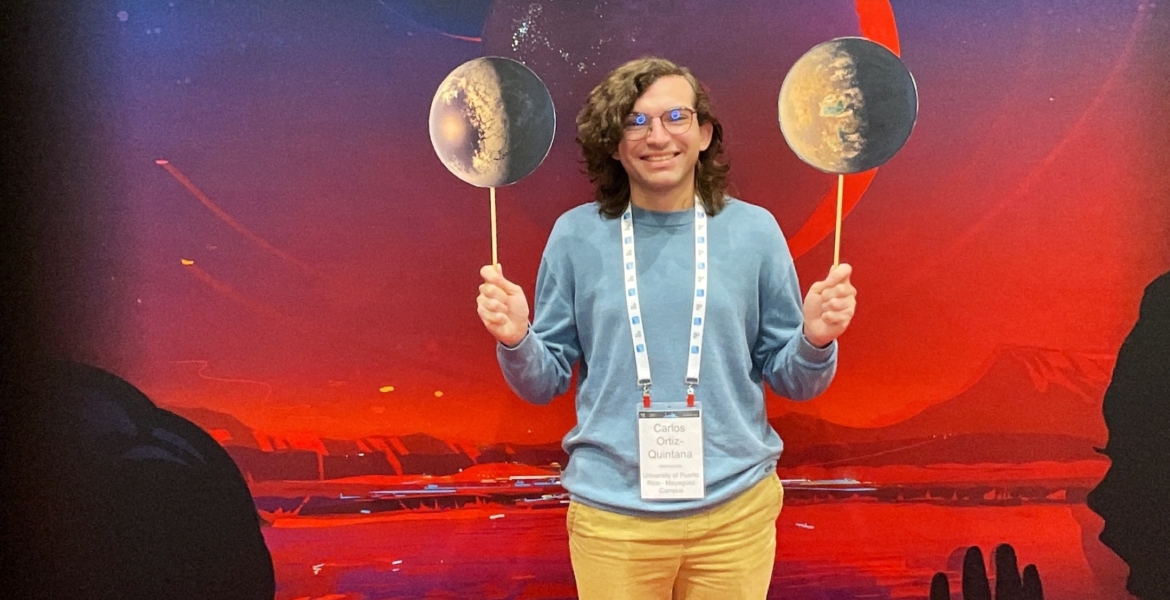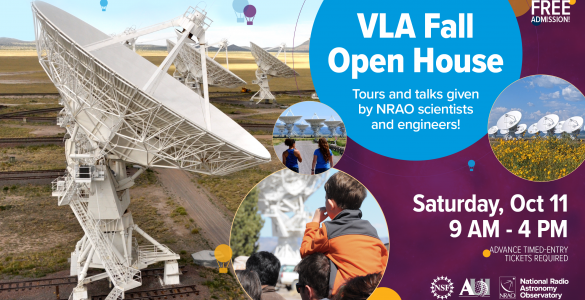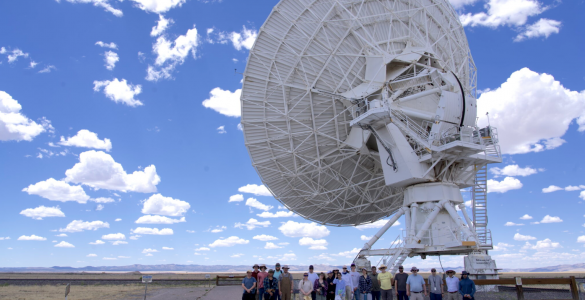Carlos Ortiz Quintana, an alumnus of the National Astronomy Consortium (NAC) at NRAO, has been awarded a five-year fellowship from the NSF Graduate Research Fellowship Program (GRFP). The purpose of the program is to help ensure the quality, vitality, and diversity of the scientific and engineering workforce of the United States. A goal of the program is to broaden participation of the full spectrum of diverse talents in STEM. GRFP recognizes and supports outstanding graduate students who have demonstrated the potential to be high-achieving scientists and engineers, early in their careers.
Carlos is originally from the east side of the Caribbean Island of Puerto Rico. He recently graduated from the University of Puerto Rico at Mayagüez obtaining a Bachelor of Science in Physics. As an undergraduate student he was part of the NAC program for three years, and his research focused on astrobiology, specifically studying models that could help characterize life on Earth-like planets. He also helped characterize Lyman alpha profiles in the inner regions of protoplanetary disks using Hubble UV data, writing code to reconstruct simulated polarized images of black holes, and generalizing to two dimensions a recently published electromagnetohydrodynamics model with astrophysics applications.
Carlos will start his PhD in Planetary Sciences at the University of Central Florida this upcoming August. He will use the NSF-GRFP to continue his research on astrobiology by modeling the effects of atmospheric escape processes on the potential habitability of exoplanets. He will also work towards other types of models with his advisor, Dr. Ramses Ramirez. After graduating, he plans on returning to Puerto Rico to establish an exoplanet research laboratory at a local institution and promote astronomy on the island.
The National Radio Astronomy Observatory is a facility of the National Science Foundation, operated under a cooperative agreement by Associated Universities, Inc.
About NAC
The National Astronomy Consortium (NAC) aims to boost the participation of underrepresented students in STEM fields by providing them with collaborative, diverse summer experiences. This competitive program is open to U.S. citizens and permanent residents enrolled in accredited undergraduate programs, including community colleges. While students from any year can apply, those in their 2nd or 3rd year are typically the best prepared and gain the most from the program.











